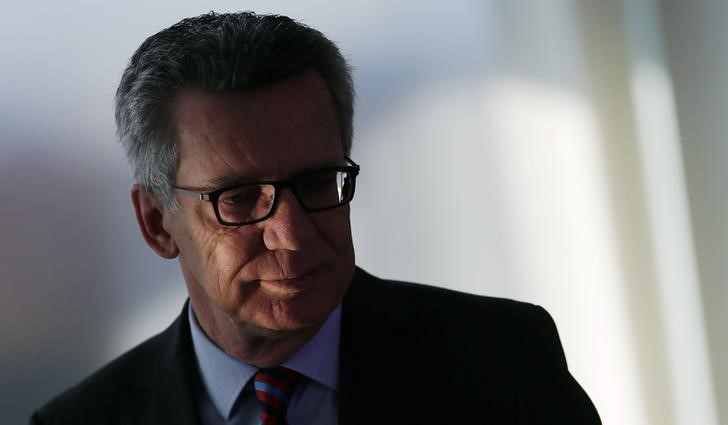By Thorsten Severin and Holger Hansen
BERLIN (Reuters) - The leaders of Germany's ruling coalition parties agreed on Thursday on a package of counter-terrorism measures and an integration law for migrants, but delayed a decision on incentives for electric cars, coalition sources said.
The anti-terrorism measures include increasing police powers to deploy undercover agents and empowering Germany's intelligence agencies to exchange information with foreign partners, under clear conditions, according to a document on the meeting's conclusions seen by Reuters.
The ruling parties - Chancellor Angela Merkel's conservatives, their Bavarian allies and the Social Democrats - also agreed on details of a planned integration law for refugees to be passed on May 24, a coalition source said, giving no further details.
Around 1 million migrants arrived in Germany last year, many fleeing conflict in the Middle East. Interior Minister Thomas de Maiziere has been planning a new law that will require refugees to learn German and integrate into society.
Last month, German authorities stepped up security measures at airports, train stations and the country's borders with Belgium, France, the Netherlands and Luxembourg following attacks in Brussels.
Social Democrat (SPD) leader Sigmar Gabriel told other senior members of his party on a conference call that no agreement was reached on supporting electric cars, one participant in the call said.
German auto sector leaders have pressed the government to introduce incentives to boost demand for electric cars, arguing support is needed if the sector is to retain its leading edge as an automotive market.

The German coalition leaders planned to hold a news conference later on Thursday to give more details on the new counter-terrorism measures, coalition sources said.